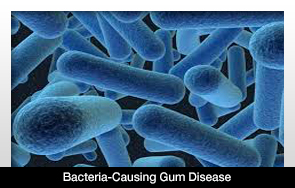 |
We all know that anything in excess is not good for us. That includes, food, drugs, alcohol, and the list is infinite.
It is a fact, however, that alcohol consumption, especially in larger amounts, not only affects our overall health but our oral health as well.
Dentists often are the first healthcare professionals to detect the abuses caused by alcohol and drug consumption.
Alcohol addiction can change the priorities in one’s life. Often alcoholics spend more time caring for their addiction than they do about their health, especially the health of their teeth and mouth.
Alcoholics in general have more tooth decay, gum disease, and missing teeth.
In addition, heavy drinking can cause irritations of the tissues inside the mouth, including the tongue and slower healing and poor healing after dental or oral surgery.
Smoking and drinking together are great risk factors for increased oral problems, especially oral cancers.
The incidence of tooth decay is a big problem due to the sugars and acids that are in alcoholic drinks.
When these sugars combine with natural bacteria in the mouth they form an acid that can attack the hard tissues of our teeth including enamel and break them down.
This is especially true when the teeth are constantly exposed to sugars and starches in alcohol without a break.
If someone consumes alcohol and the sugar begins to break down enamel, that enamel has the ability to remineralize on its own after a few hours.
If the teeth are continuously fed alcohol without waiting five hours, for example, in between drinks, then the enamel matrix deteriorates past the point of return and a cavity starts.
Tooth decay is like rust and will continue to grow at variable rates.
So it is not the amount of alcohol consumed at one time that causes the destruction of our teeth but the interval at which one consumes the alcohol.
The same goes for candy and any kind of sugars in relation to tooth decay.
It is a fact that saliva flow helps to reduce the incidence of cavities by washing away harmful bacteria.
Alcohol dries your mouth just like smoking and the dry tissues decrease the salivary flow and thus increase the chance of decay.
Alcohol gets metabolized into sugar and then the sugar into plaque often within 24 hours.
The truth that we produce more saliva during the day than at night gives us the belief that drinking during the day will likely speed up the deterioration of our teeth, regardless if we brush or not. This is not always factual.
Also the chances of developing oral cancer are higher if the person is a day drinker, because the metabolism of the body is highest during the day.
Wine has been a big part of the lifestyle of many and will continue to be.
It’s a common way to relax each night with dinner or to end the work week with and is loved all around the world, especially in Europe.
Some find it refreshing, some indulge in it, and teenagers sneak it. Older individuals enjoy wine-tasting.
But beyond the popularity that alcohol receives, it still gets no real solid praise from the medical professionals, especially from dentists.
So be warned.
If you are going to drink, brush and floss as soon after as possible.
If you think you have a drinking problem, speak to your doctor about getting help because not just your teeth will be affected in the end.

|











